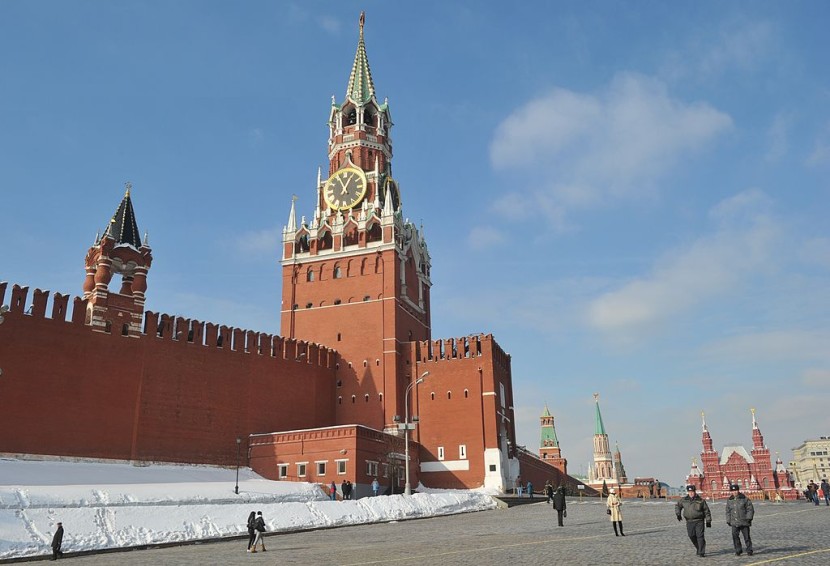
Newly declassified US intelligence agency reports reveal its Russian counterparts are operating a systemic program to launder pro-Kremlin propaganda through private relationships between Russian operatives and unwitting US and other Western targets.
Both CNN and the New York Times first reported on the revelation, saying US intelligence officials believe the Russian Federal Security Service (FSB) was attempting to influence public policy and public opinion in the West by directing Russian civilians to build relationships with influential US and Western individuals and disseminate narratives supporting the Kremlin's objectives while obscuring the FSB's role through layers of ostensibly independent actors.
"These influence operations are designed to be deliberately small scale, the overall goal being US [and] Western persons presenting these ideas, seemingly organic," a US official authorized to discuss the material told reporters on the condition of anonymity.
The independent actors, which were called "co-optees" in the report, were "primarily built on personal relationships" by building their trust with them and leveraging it to covertly push the FSB's agenda.
Read Also: Pro-Kyiv Russian Volunteer Corps Urges Wagner to Switch Sides to Avenge Prigozhin's Death
Some FSB Co-optee Cases
The declassified intel report added the campaigns have been effective in planting Russian narratives in the Western press.
One of the names mentioned in the report was Maxim Grigoriev, who heads a Russian NGO. He made multiple speeches to the United Nations presenting a false study that claimed the humanitarian group the White Helmets - which operates in Syria - was running a black market for human organs and had faked chemical attacks by Syrian President Bashar al-Assad, with whom Russia is allied.
According to open-source materials provided by the US intel official, the claims eventually found their way into a television report on the far-right US media outlet OANN.
The official added that the Western people who eventually propagated the Kremlin's agenda were almost certainly unaware of the role they were playing.
"At the end of the day, this unwitting target is disseminating Russian influence operation, Russian propaganda to their target public," the official added.
The intelligence report has also provided several examples of Russian civilian co-optees doing the FSB's work, such as Andrey Stepanenko, who founded a media project in 2014 that sponsored journalists from the West to visit the Donbas in eastern Ukraine and learn the "alleged truth" about the situation on the ground, with the FSB "almost certainly" bankrolling him to invite the said journalists into the area prior to its destruction because of Moscow's full-scale invasion in 2022.
The official also cited Natalia Burlinova, the founder the a Russian NGO Creative Diplomacy who routinely coordinated FSB-funded public diplomacy efforts aimed at influencing Western views and individuals.
In 2018, she visited, had meetings, and hosted events at multiple US think tanks and universities in New York, Boston, and Washington, all of which were funded out of the FSB's pockets.
She was indicted earlier this year on charges of conspiring with an FSB officer to act as an illegal agent of Russia inside the United States, although she remains at liberty in Russia.
All of the names and entities the US intelligence official mentioned were asked for comment but have yet to respond as of this report.
FSB's Involvement in US, Russian Politics Speculated
While the official declined to offer specifics to cross-reference the US intelligence community's assertions the FSB was bankrolling such operations, the official noted that once they were able to establish FSB backing, it would be easy to trace the narratives co-optees were pushing in open-source materials.
The official has also declined to say whether Russia was also using the same tactics in trying to influence US elections, just like the speculations simmering about Russian influence on the election of former US president Donald Trump in 2016, and how the organization running the troll farm in his favor, the Internet Research Agency, was founded and funded by presumably-deceased Wagner mercenary boss Yevgeny Prigozhin and was in operation until very recently, when Prigozhin decided to lead Wagner into a failed mutiny last June, which purportedly cost his life exactly two months later.
However, the FSB does use similar tactics to influence political opinion within Russia, just like the case of Russian media personality Anton Tsvetkov, who organized protests outside of embassies in Moscow, including the US Embassy, at the FSB's behest.
The protests were pushing the Kremlin's narrative of the war in Ukraine, "promoting the 'Ukrainian Nazi' narrative and blaming the U.S. and its allies for the deaths of children in the Donbas," while concealing its role, according to the declassified report.
"The purpose of those protests really was...designed to sell it to the Russian people," the official added.
Related Article: Russian Mi-8 Helicopter Pilot Defects to Ukraine








